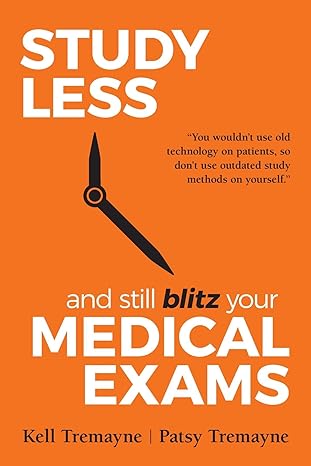- Home
- What Is a Mindset
What Is a Mindset - and Why It Could Be the Key to Surviving Junior Doctor Life
You’re exhausted. You’ve just finished a long shift, your feet ache, and your mind is already racing through tomorrow’s to-do list. On top of that, exams are looming. You’re trying to revise, stay focused, and somehow keep it all together. In moments like these, it’s easy to feel like you’re drowning in expectations. But there’s one invisible force that can quietly shape how you cope, learn, and grow through it all—and that’s your mindset. So, what is a mindset?
It’s the internal lens through which you interpret challenges, setbacks, and successes. And for junior doctors, it might just be the most important tool you didn’t know you had (Dweck, 2006).
The Mindset Shift That Changes Everything
Your mindset isn’t just about being positive—it’s about how you think when things get hard. It’s the difference between saying, “I’m not good at this,” and “I haven’t mastered this yet.”
That subtle shift, known as a growth-oriented reframe, can dramatically influence how you approach learning, how you respond to feedback, and how you bounce back from tough days (Dweck, 2006).
This isn’t just motivational fluff—it’s backed by neuroscience and performance science. When you adopt a growth mindset, your brain becomes more receptive to learning. You’re more likely to engage with difficult material, persist through challenges, and activate problem-solving strategies rather than avoidance behaviors (Himmelberger et al., 2024).
“The difference between an ordeal and a challenge is attitude.”
What is the Relevance of this Mindset Change to Junior Doctors
In medicine, where the learning curve is steep and the stakes are high, this shift is critical. Junior doctors are constantly exposed to new procedures, unfamiliar diagnoses, and emotionally charged situations. A fixed mindset in these moments can lead to paralysis - “I’m not cut out for this.” But a growth mindset opens the door to resilience - “This is hard, but I can improve.”
Research in clinical education environments shows that trainees with a growth mindset are more likely to seek feedback, reflect on their performance, and adapt their strategies over time (Hopkins et al., 2024).
They don’t just survive—they evolve.
And here’s the most empowering part: this shift doesn’t require perfection. It requires practice. Every time you choose curiosity over self-criticism, every time you say “not yet” instead of “never,” you’re reinforcing a mindset that supports your long-term success.
What Is a Mindset: 3 Questions to Ask for the Junior Doctor
1. Which Mindset Do You Operate From? |
2. Does Fear of Failure Hold You Back? |
3. Can You Change Your Mindset? |
 |
 |
 |
Let's look at these three questions in more detail
1. Growth vs. Fixed: Which One Are You Operating From?
Psychologist Carol Dweck introduced the concept of the growth mindset—the belief that your abilities can be developed through effort, learning, and persistence (Dweck, 2006). This contrasts with a fixed mindset, where you believe your intelligence and talents are static and unchangeable.
Understanding the difference between a growth mindset versus fixed mindset is crucial for junior doctors.
A recent study found that burnout and competition often reinforce a fixed mindset, while collaboration and role modelling promote growth (Hopkins et al., 2024). A growth mindset helps you
- embrace feedback,
- take on challenges, and
- view mistakes as part of the process.
A fixed mindset, on the other hand, can make you
- fear being wrong,
- avoid difficult tasks, and
- feel stuck when things don’t go perfectly.
2. Does the Fear of Failure Hold You Back?
Let’s talk about something that doesn’t get enough airtime in medical training: fear of failure.
It’s real. It’s heavy. And it’s often silent.
Fear of failure is a dispositional tendency to avoid failure in achievement settings, often driven by fear of embarrassment, judgment, or disappointing others (Martin & Marsh, 2003). Among medical students, this fear has been linked to anxiety, self-doubt, and even academic stagnation (Alabduljabbar et al., 2022).
But the truth is, failure is part of learning.
“Doctors often arrive at medical school with no experience of academic failure... But failure is also a part of life.”
Reframing failure as feedback—not a verdict—is one of the most powerful mindset shifts you can make.
3. Can You Actually Change Your Mindset?
Yes. And you don’t need to overhaul your entire personality to do it.
Mindset is not fixed—it’s flexible. You can learn how to change your mindset by
- becoming more aware of your inner dialogue,
- challenging unhelpful thoughts, and
- practicing new ways of thinking.
Research shows that mindset can evolve over time, especially when students are exposed to supportive environments and reflective practices (Himmelberger et al., 2024).
In our book emphasize this with a practical tool:
“The power of yet is that it builds a bridge between having a fixed mindset and having a growth mindset.”
If you’re wondering, “Okay, but how do I actually start changing the way I think?” - you’re not alone. That’s why we’ve created a practical guide on how to change my mindset, with simple, actionable steps tailored for junior doctors like you.
You're Not Weak - You're Human
Feeling overwhelmed doesn’t mean you’re not cut out for this. It means you care deeply. It means you’re pushing yourself in a system that often asks too much and gives too little back. And it means you’re in the perfect position to build the kind of mindset that will carry you through not just exams - but your entire career.
Many junior doctors are exhausted, burnt out, and have no reserves. So you’re not alone in feeling this way. The pressure to perform, the fear of failure, and the constant juggling of study, work, and life can make even the most capable doctors question themselves.
But here’s the truth: your struggle is not a sign of weakness—it’s a sign of growth. Every time you pause to reflect, every time you choose rest over relentless cramming, every time you ask for help or take a breath before answering a tough question, you’re building resilience.
So the next time you’re staring at your notes, wondering how you’ll get through the week, ask yourself:
- What is my mindset telling me right now?
- And more importantly—is it helping me grow, or is it holding me back?
If it’s the latter, remember the yet solution:
““I’m not good at this… yet.”
“I haven’t passed… yet.”
“I don’t feel confident… yet.”
This small shift in language can open the door to possibility, to progress, and to self-compassion.
You’re not just preparing for an exam—you’re preparing for a lifetime of learning, leading, and healing. And that starts with how you treat yourself today.
References
- Alabduljabbar, A., et al. (2022). Assessment of fear of failure among medical students at King Saud University. Frontiers in Psychology, 13, 794700. https://doi.org/10.3389/fpsyg.2022.794700
- Dweck, C. S. (2006). Mindset: The new psychology of success. Random House.
- Himmelberger, Z. M., et al. (2024). How can a growth mindset-supportive learning environment in medical school promote student well-being? Families, Systems, & Health, 42(3), 343–354. https://doi.org/10.1037/fsh0000915
- Hopkins, S. R., et al. (2024). Trainee growth vs. fixed mindset in clinical learning environments. BMC Medical Education, 24, Article 1199. https://doi.org/10.1186/s12909-024-06211-6
- Martin, A. J., & Marsh, H. W. (2003). Fear of failure: Friend or foe? Australian Psychologist, 38(1), 31–38. https://doi.org/10.1080/00050060310001706997






